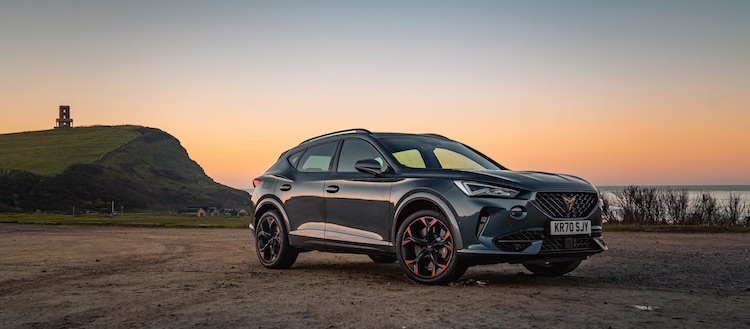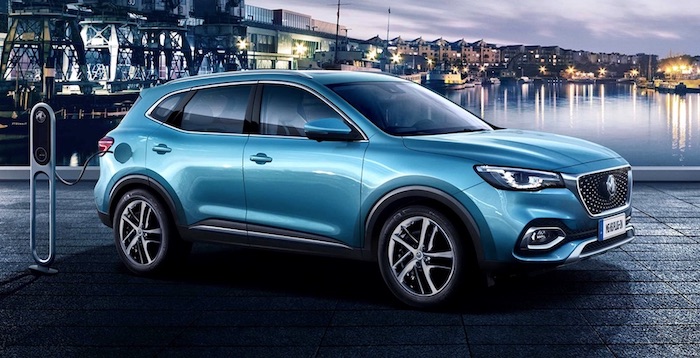Electric Cars: The Basics
For those of you new to zero-emission electric driving, we recommend a read of the following articles:
Sign up to the e-zoomed Electric Living newsletter
Why Are Electric Cars So Fast? Are EVs Faster Than Internal Combustion Engines (ICE)?
The days of slow moving electric milk floats are long over. Electric cars, in particular, battery-electric vehicles (BEVs), are fast and in many cases have faster acceleration than conventional petrol and diesel internal combustion engine (ICE) cars. In fact, most pure electric cars are more efficient compared to internal combustion engines with a similar horsepower.
The primary reason for the superior acceleration in all-electric cars, is that, electric vehicles (EVs) deliver ‘peak or maximum torque’ instantaneously, producing immediate acceleration (also referred to as instant torque). However, petrol and diesel cars take time to reach maximum or peak torque. In particular, diesel cars are known for being sluggish. The better torque performance of electric cars, further contributes to the ‘fun factor’ in driving EVs compared to conventional cars. The higher the torque, the faster the acceleration. For avoidance of doubt, acceleration and maximum speed are different concepts. Bottom-line, an EV can achieve superior acceleration without any noise or tailpipe pollution!
It is also worth noting, that in general, the latest pure electric cars are aerodynamically very efficient. As an example, the all-electric Lightyear One has drag coefficient Cd of 0.197. In fact, the automotive company claims to have the best aerodynamic coefficient of any car currently available. To further improve the efficiency of electric vehicles, automotive manufacturers are also incorporating lighter materials in the production of an EV. Again, as an example, the Lightyear One solar car, incorporates, aluminium and carbon fire to reduce the weight of the electric car, which also helps compensate for the additional weight of the onboard EV battery.
Acceleration Of ‘Everyday’ Pure Electric Cars?
Some electric cars offer mind-boggling acceleration. A good example is the all-electric Tesla Roadster, that can achieve 0-62 mph in a mere 1.9 seconds. Another example is the all-electric Lotus Evija Hypercar, which can achieve 0-62 mph in under 3 seconds, and 0-186 mph in 9.1 seconds. In reality, only a few of us will own these fast electric cars. However, the good news is that even ‘everyday’ pure electric cars offer acceleration worth noting! Below are some examples of pure electric cars, far more ‘price accessible’ for a wider consumer base. The majority of EVs listed below can achieve 0-62 mph in under 5 seconds. Now, that is impressive!
| Fast Electric Cars | 0-62 MPH |
|---|---|
| Audi SQ8 e-tron Sportback | 4.5 seconds |
| Audi RS e-tron GT | 3.3 seconds |
| BMW i7 | 4.7 seconds |
| Ford Mustang Mach-E | 6.9 seconds |
| Jaguar I-PACE | 4.5 seconds |
| Kia EV6 GT | 3.5 seconds |
| Lotus Eletre | 4.5 seconds |
| Mercedes-Benz EQE | 3.5 seconds |
| Polestar 3 | 4.9 seconds |
| Porsche Taycan | 5.1 seconds |
| Rolls-Royce Spectre | 4.4 seconds |
| Tesla Model Y | 3.5 seconds |
| Volvo EX90 | 4.7 seconds |
Fastest Pure Electric Cars: Top 5

| Fastest Electric Cars: Top 5 | 0-60 MPH |
|---|---|
| Aspark Owl | 1.69 seconds |
| Rimac Nevera | 1.85 seconds |
| Tesla Roadster | 1.9 seconds |
| Deus Vayanne | 1.99 seconds |
| Pininfarina Battista | 2.0 seconds |
While e-zoomed uses reasonable efforts to provide accurate and up-to-date information, some of the information provided is gathered from third parties and has not been independently verified by e-zoomed. While the information from the third party sources is believed to be reliable, no warranty, express or implied, is made by e-zoomed regarding the accuracy, adequacy, completeness, legality, reliability or usefulness of any information. This disclaimer applies to both isolated and aggregate uses of this information.
































